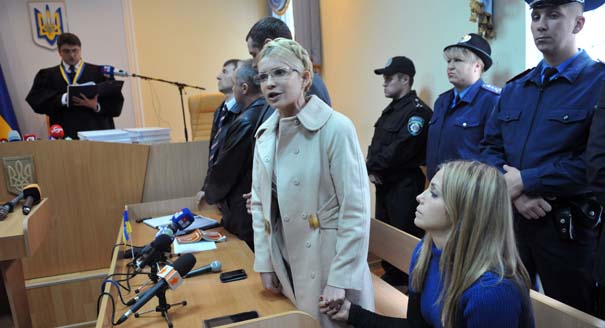Many international observers watching the trial of former Ukrainian Prime Minister Yulia Tymoshenko believed that the Ukrainian authorities would attempt to avoid a guilty verdict due to their reliance on the aid from the United States and the European Union to counter continuing pressure from Russia. But instead a harsh verdict for the former head of the Ukrainian government was handed down: seven years in prison.
Although many have argued that the verdict is irrational, the government of Ukraine seems to have its own logic. Despite the immediate costs, the power brokers in Kiev believe that over time they will succeed in mitigating the stress caused by the verdict, and relations with the West will normalize once again. How will they be able to do it? The ruling circles in Ukraine seem to regard the answer to this question as less important than minimizing the domestic political risks associated with future parliamentary elections, which would have included Tymoshenko. The absence of the strongest opposition candidate is the best guarantee for maintaining power; more reliable than the promises of all of the friendliest countries of the West taken together.
Perhaps equally important is the way the Ukrainian authorities will use the Tymoshenko verdict to pressure Russia into renegotiating the price of gas. It remains to be seen whether Kiev will use this new weapon immediately, or whether it will prefer by using the factor of a possibility of a threat to attempt to achieve its goals, while at the same time trying to not excessively anger Moscow.
Both options are possible. The first is more likely if Kiev believes that Russia, for various international and domestic reasons, is not ready for another “gas war” and is forced to make concessions. However, it is possible that Russian Prime Minister Vladimir Putin could take a hard line, prompting a serious battle that Kiev cannot afford—Ukraine needs gas here and now.
Therefore, second option can not be excluded: after harsh declarations from both sides, they will attempt to negotiate a compromise. But even in this case, the compromise will likely shift in Ukraine’s favor, politically and perhaps economically.





